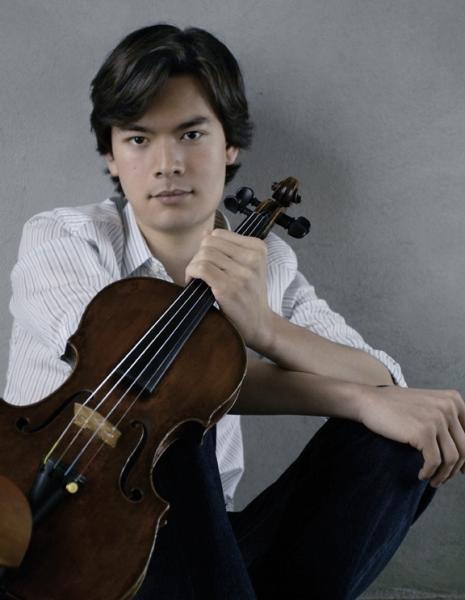Jackiw’s memorable Prokofiev highlights Russian National Orchestra concert

Stefan Jackiw performed Prokofiev’s Violin Concerto No. 2 with the Russian National Orchestra Monday night at the Kravis Center.
Russian music played by Russia’s finest ensemble was the major draw for the full house that greeted the Russian National Orchestra Monday night at the Kravis Center in West Palm Beach. The orchestra’s music making was indeed world class but the most extraordinary performance of the evening was rendered by soloist Stefan Jackiw, playing Prokofiev’s Violin Concerto No. 2 in G minor.
Is Jackiw the most underrated violinist on the concert scene today? This Harvard and New England Conservatory graduate is a musician of rare interpretive gifts. Jackiw’s impeccable technique and silvery tone strongly conveyed Prokofiev’s bittersweet lyricism. Even the tonal glow in Jackiw’s playing of the second theme in the opening Allegro moderato was tinged with a sense of tragic darkness.
In the second movement, he gave careful attention to the phrasing, shape and contour of the main melody, reminiscent of Prokofiev’s ballet scores. Jackiw’s initial lightness of bow and serene flow was succeeded by emphatic changes of mood and pace. The theme’s repetition was given full thrust and sinew against conductor Kirill Karabits’ churning accompaniment. Bereft of prettified accents, this was more angst-laden Prokofiev than one usually hears in this score.
Jackiw’s fierce attack and pungent rhythmic energy underlined the dance macabre of the finale, the double stops spot on and the intensity relentless up to the final chords. Karabits brought out the wind and brass writing and underlined the timpani’s important role in the final movement. A sense of edgy agitation pervaded the orchestral lines.
The Russian National Orchestra remains among the top international ensembles. Winds and brass play with clear, rounded tone unlike the nasal, heavy vibrato found in many Russian orchestras. Absolute precision and full, dark hued corporate sonority mark this group’s unique string sound.
Conductor of England’s Bournemouth Symphony, Karabits is leading the Florida leg of the ensemble’s American tour. In the current political conflict between Russia and the Ukraine, this is something of an awkard musical detente. Ukrainian by birth, Karabits recently directed an Independence Day concert in that nation’s capital Kiev. On Monday night, he led exciting readings of Russian repertoire standards that were anything but conventional.
Borodin’s In the Steppes of Central Asia is a tonal portrait of a caravan coming from and receding into the distance of the deserted steppes. From the evocative horn and clarinet statement of the dominant melody, Karabits’ taut pacing kept the score from turning into sentimental treacle. The orchestra’s large tonal compass shone impressively.
Stravinsky’s Firebird Suite was performed in the composer’s revised 1945 version. This final revision is harmonically leaner and tighter than the familiar 1919 version and contains more music from the full ballet score. With basses on the left rear of the stage next to the harp and violins divided on each side of the podium, Stravinsky’s orchestral kaleidoscope was given full play. The Introduction seemed to rumble out of the lower depths of the orchestra, Karabits giving due prominence to the bassoon, lower strings and timpani.
He commanded whipcrack, turn on a dime response from the ensemble with seamless changes of meter. There was balletic lightness in the Firebird’s Dance and the pantomime was full of Russian languor. Karabits sharply pointed up the percussion effects in the Infernal Dance and gave the final processional clarion impact. The terrific performance brought the usually sedate Kravis audience to its feet with cheers and bravos.
Two encores by Khachaturian–the waltz from the Masquerade Suite and a whirlwind Lezginka from the Gayane ballet–showcased the orchestra’s brilliance and luster.
The Regional Arts series continues 2 p.m. March 28 at the Kravis Center in West Palm Beach with members of the Chamber Music Society of Lincoln Center playing works by Mozart, Schubert and Mendelssohn. kravis.org.
Posted in Performances
Leave a Comment
Tue Mar 8, 2016
at 12:40 pm
No Comments





